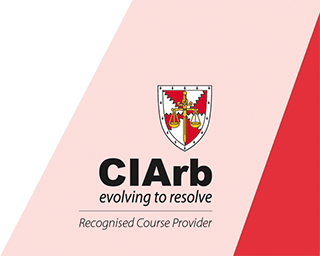Mediation Awareness Week
This week is Mediation Awareness Week. Mediation is an increasingly important way to resolve conflict in many walks of life - a fact borne out by last year’s bi-annual survey undertaken by the Civil Mediation Council and CEDR which identified that mediation was on the increase.
Employers are becoming more used to using mediation internally to resolve problems within the workplace, the NHS use mediation effectively to resolve complaints and there was even talk of mediation helping BREXIT !
So, with the gathering momentum of mediation, now is the time to think about whether you should train as a mediator.
There are certain qualities which may make for a good mediator - a natural curiosity, perseverance, patience, tact, adaptability, initiative to name but a few. I do think you have to be genuinely interested in people - after all, you will as a mediator be spending a lot of time getting to understand what makes someone tick potentially. Hand in hand with that goes the essential ability to be able to communicate well. As a mediator, the greatest skill (and sometimes challenge) is to be able to listen effectively and actively.
People come to our mediation courses sometimes to start a new career journey, sometimes because it is a good compliment to the current day job or sometimes just because they are interested in the toolkit of skills that mediation training imparts.
The skills are all aimed at enabling people in conflict to work towards finding a resolution which they find and which will work for them. It is not our job as mediators to tell people what the answer is - we are not there to advise, we do not need to know the law or the inner workings of the dispute. Rather the skills a mediator learns, are those skills which will enable the individuals in conflict to look with fresh eyes on the problem, perhaps to see it from a different perspective, to put themselves into the shoes of their adversary. The mediator will get them to look forward, to consider the consequences of not reaching a resolution.
The skills are focused on active listening,questioning, probing - facilitating a safe confidential environment in which options can be generated and explored. When the mediator is doing a good job, solutions can be uber creative and will often go beyond what any formal process such as a court, could award.
All of the skills you would learn on a mediation training course would enable you to work as a mediator in the formal sense, but would also enable you to communicate better within your workplace, your home, within your relationships. Delegates have described their learning journey to us as being life changing. We have had delegates take their new found skills back to peacekeeping organisations over seas, back into major companies with thousands of staff, back into an educational setting to help relationships between educators, parents & students. We have had delegates go onto work successfully as civil/commercial mediators, to work with the police in hostage negotiations and crisis management and also to go into the community and use the skills in a pro bono setting to help facilitate change.
If you are interested in learning more, please contact us. Our accredited mediation courses run monthly in London or Leeds. We also offer bespoke in-house courses.


